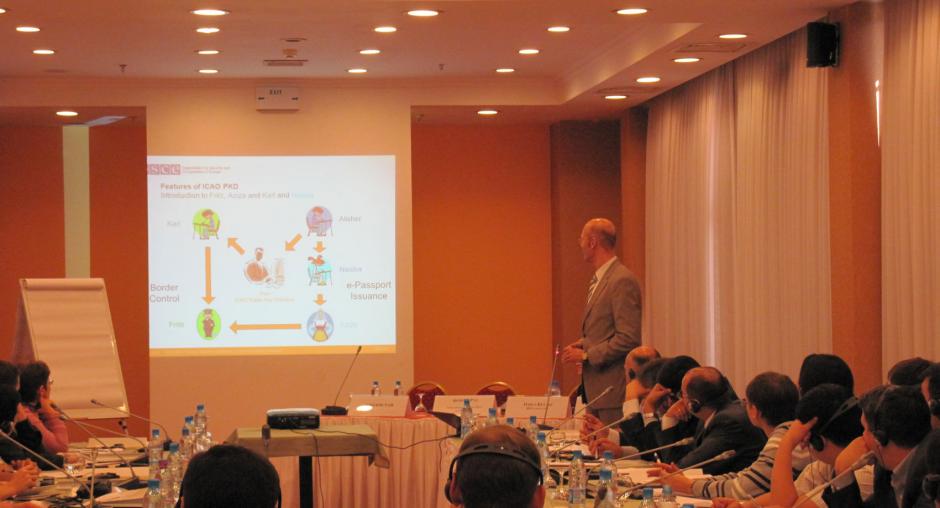Secure passports in focus at OSCE workshop in Uzbekistan

TASHKENT, 8 October 2010 - An OSCE-supported training course that studied what Uzbekistan needs to do to participate in an international multilateral technical platform designed to validate biometric data stored in electronic passports, and how it could benefit from participation, concluded today in Tashkent.
The two-day workshop on the International Civil Aviation Organization's Public Key Directory, organized by OSCE Project Co-ordinator in Uzbekistan, brought together representatives from different government ministries, institutions and agencies.
The workshop was organized as part of work following a decision by OSCE Foreign Ministers in 2009 that calls on OSCE participating States to consider becoming participants to enhance border control security.
"Participation in the Public Key Directory is a key element in the introduction of electronic passports, because it enables authentication of such passports at border control and it facilitates fast and secure border crossings and enhances the trust of other countries in electronic passports," said Ambassador Istvan Venczel, the OSCE Project Co-ordinator in Uzbekistan.
Electronic passports and participation in the Directory should be part of a robust national identity management system that aims to prevent that criminals and terrorists can obtain legitimate ID papers under false identities.
The OSCE Project Co-ordinator in Uzbekistan and the OSCE Action against Terrorism Unit organized the workshop as a part of a project to support the government's efforts to improve the national passport system and introduce biometric ID and travel documents.
